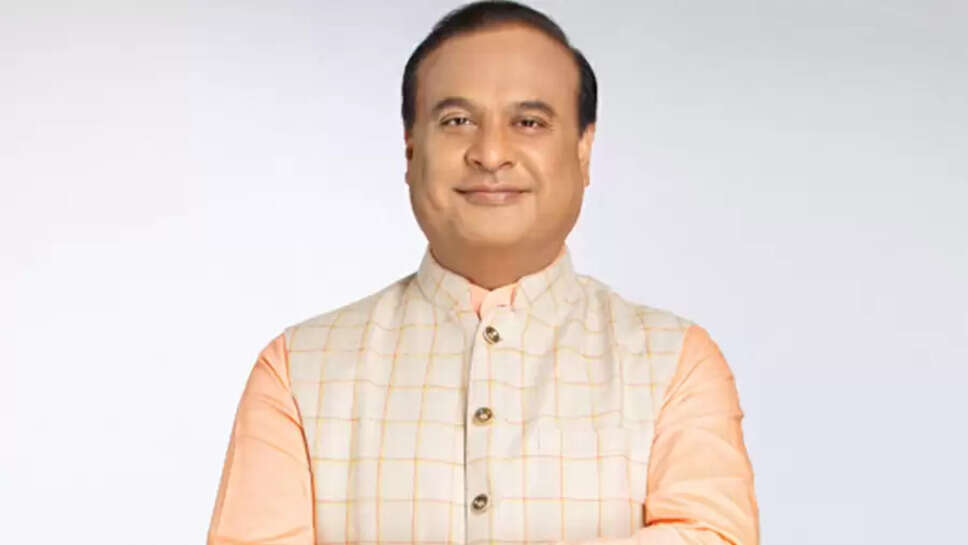Congress Behind Eviction Site Clash, Alleges Assam CM Himanta Biswa Sarma

In a politically charged statement that has stirred national debate, Assam Chief Minister Himanta Biswa Sarma has blamed the Congress party for the recent violent clash at an eviction site in the state. The incident, which unfolded during a government-backed eviction drive in Assam's Silsako area, left several people injured and further escalated tensions around the state's land policies and political divide.
Sarma didn’t hold back as he accused Congress leaders of “deliberately inciting unrest” and even went so far as to say that top national leaders like Rahul Gandhi and Mallikarjun Kharge could be summoned for questioning if investigations warranted.
The Clash: What Happened?
The violent confrontation occurred when state authorities, supported by police forces, moved to clear encroachments on government land. The eviction operation, part of a broader land reclamation drive, met stiff resistance from local residents who claimed they were being targeted unfairly and without due process.
The situation turned volatile when protesters clashed with police, resulting in lathi charges, tear gas usage, and dozens of injuries on both sides. Videos of the violence quickly went viral, prompting strong responses from opposition leaders and human rights groups.
Congress leaders condemned the evictions as “anti-poor” and accused the government of bulldozing homes without proper rehabilitation. Sarma responded forcefully, saying the unrest was politically motivated and orchestrated to disrupt governance and provoke chaos.
Sarma’s Accusation
In a press interaction shortly after the incident, CM Himanta Biswa Sarma stated, “This was not a spontaneous protest. It was carefully planned and provoked by elements with political motives. Congress is squarely responsible for the chaos.”
He went further: “If the investigation leads us to Rahul Gandhi or Mallikarjun Kharge, they can be summoned. No one is above the law—not even top Congress leaders. We will not allow political parties to incite violence in the name of public sympathy.”
This statement has drawn sharp reactions from the opposition, civil society, and legal experts, with many accusing the Assam government of using law enforcement to target political adversaries.
Congress Responds
The Congress party has hit back at Sarma’s claims, calling them baseless and politically motivated. Spokespersons from the party dismissed the CM’s threats as “diversionary tactics” meant to draw attention away from the human cost of the government’s eviction drives.
Mallikarjun Kharge, the party’s national president, tweeted, “In Assam, BJP has unleashed a wave of evictions against the poor without rehabilitation. When citizens protest, they are met with brutality. Now, instead of taking responsibility, the CM blames us. The people are watching.”
Rahul Gandhi, who has been vocal on similar issues in the past, also criticized the eviction model and said such actions violate the constitutional promise of justice and equality.
Evictions and the Politics of Land
Assam has been at the center of a contentious debate over land rights for years. The government has launched multiple eviction drives in areas it claims are occupied illegally, often citing environmental, infrastructural, or security reasons.
While the state insists these drives target encroachments on government or tribal land, critics argue that the evictions disproportionately affect marginalized communities—especially minorities and the poor.
Sarma has defended the state’s actions by asserting that “public land must serve public good,” adding that cleared land would be repurposed for infrastructure development, flood management, and welfare schemes.
But opposition parties and human rights organizations have questioned the lack of transparency, alleged communal bias, and the speed with which bulldozers are deployed—often without a clear legal mandate or court order.
A Pattern of Political Confrontation
This latest clash is just the newest episode in a long series of face-offs between the Assam government and the Congress party. Over the last few years, Sarma has made a name for himself as one of the BJP’s most vocal and confrontational leaders, often using sharp rhetoric against opposition figures, particularly Rahul Gandhi.
His threat to summon national leaders underlines how local issues in Assam frequently balloon into national political confrontations. Legal experts say that while state authorities do have the power to question individuals in connection with a crime, summoning national party leaders would require strong evidence of direct involvement—a bar that is difficult to clear.
Civil Society Reacts
Activist groups have condemned both the eviction drive and the political rhetoric surrounding the incident. Several rights organizations have called for an independent inquiry into the violence and demanded the suspension of eviction activities until adequate rehabilitation policies are implemented.
“The real issue is not who incited whom, but the human suffering caused by reckless displacement,” said a statement by the Assam Human Rights Watch. “The state must answer whether its eviction policies comply with the Constitution and international norms.”
Legal and Ethical Questions
Sarma’s statement raises crucial questions about the legal boundaries of political accountability. Can a CM summon national leaders for what is essentially a local law-and-order issue? What proof is required? Is political speech sufficient grounds for legal summons?
Legal analysts caution that without material evidence—such as communication records, financial transfers, or on-ground involvement—such summons may be dismissed by the courts as political overreach.
But for Sarma, who thrives on high-voltage political battles, the strategy may be more about optics than legalities. By naming Rahul Gandhi and Kharge, he aligns the local protest with a larger anti-BJP narrative and attempts to consolidate his base by framing the opposition as anarchic and disruptive.
Looking Ahead
The state government has ordered a probe into the incident, and a judicial inquiry may follow depending on public pressure. Meanwhile, political temperatures in Assam are rising, with both BJP and Congress launching campaigns to present their narrative to the public.
With national elections around the corner and state-level issues increasingly spilling into national headlines, Assam may once again become a flashpoint in India’s evolving political battlefield.
Whether Sarma's aggressive positioning yields legal consequences or just political capital remains to be seen—but it has certainly ensured that the eviction clash won’t fade from headlines anytime soon.
.jpg)